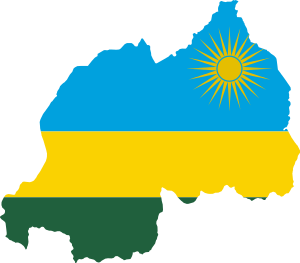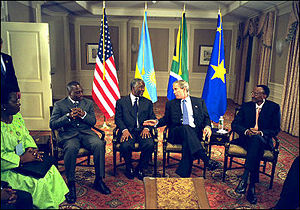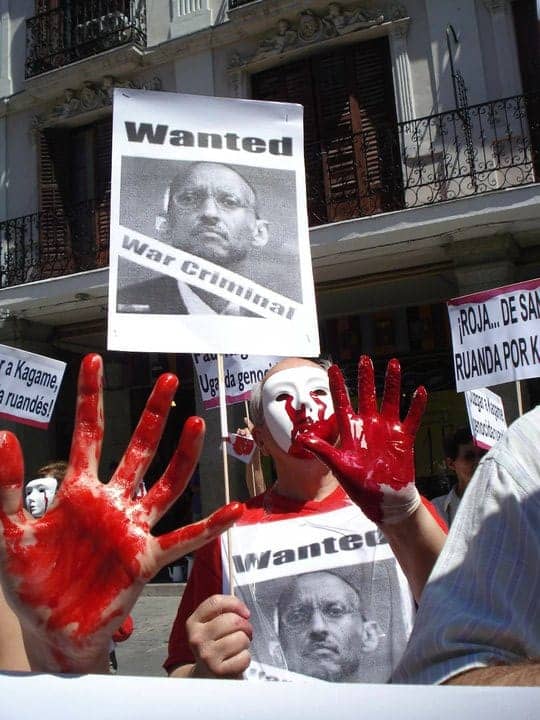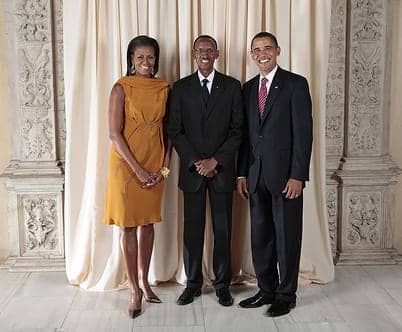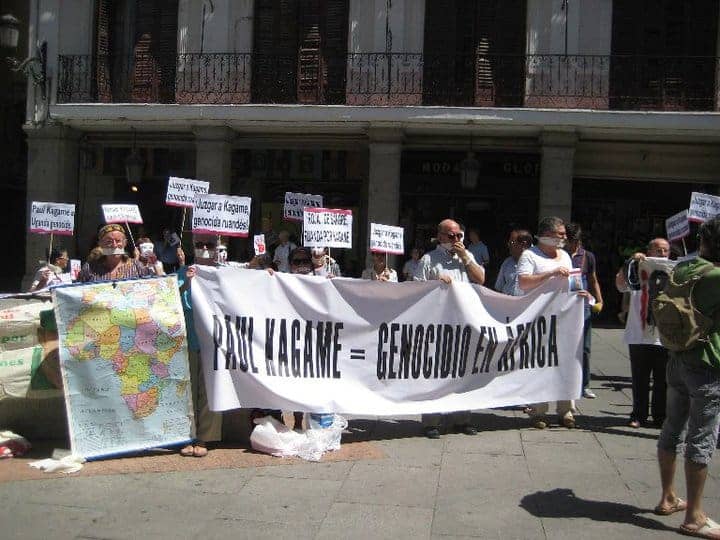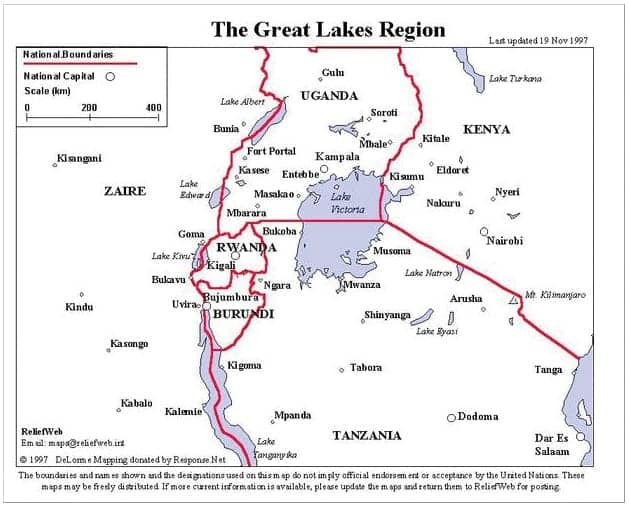 |
| The decapitated body of the Green Party Leader |
Rights groups warn of growing authoritarianism
* Many donors, investors focus on short-term stability
* Any erosion of rule of law brings longer term dangers
By Peter Apps, Political Risk Correspondent
LONDON, July 28 (Reuters) - Rwandan President Paul Kagame might be able to clamp down on dissent ahead of elections without much immediate donor or economic impact, but it could bring longer term investment risks.
Kagame has been feted and courted by Western and multilateral donors, and credited with rebuilding the country after the 1994 genocide. He has also set out a roadmap to move the country of 10 million beyond its dependence on agriculture -- primarily tea and coffee -- and transform it into an IT hub.
"Investor interest in Rwanda is still rising, particularly in infrastructure and agriculture," said Thomas Vis, a risk management officer at the World Bank. "Obviously if the political situation will seem to be deteriorating, that could have an impact on investment but there are no signs of it."
But critics and rights groups say he has become increasingly authoritarian, and they are asking questions about the killing of an opposition politician, the shooting in South Africa of a dissident general, the killing of a journalist and the arrest of opposition figures. The government denies involvement.
Some analysts say Kagame has been reacting to rising challenges from within the ruling elite, although few doubt he will win presidential elections on Aug. 9 easily. Several opposition parties have been unable to stand.
Nevertheless, investors who had assumed Kagame would remain comfortably in control are wondering more about the future. Many -- along with Western governments -- would rather keep him. Most expect foreign observers to ultimately rate the elections fair although they may raise some concerns.
"There is no clarity at all on who might follow him if he were to go," said Control Risks analyst Laura Morrison. "Kagame has played the public relations game very well -- the donors have a lot invested in him. It's almost impossible to imagine they would switch from him now."
Rwanda is not the only African country praised by the West that looks to have drifted towards authoritarianism in recent years. Uganda and Ethiopia are often cited as similar examples by some analysts.
Certainly, investors have a tendency to prefer authority to chaos. Many say they prefer Russia as an investment destination under President and then Prime Minister Vladimir Putin than they did under the more anarchic rule of Boris Yeltsin.
Sri Lanka lost out on Western aid and preferential access to European textile markets on concerns over alleged human rights abuses in the closing stages of its civil war but investment flows particularly from Asia remain strong.
The rise of China means that losing Western support is much less damaging, providing a crutch to governments such as Sudan and Zimbabwe. A decline in the perceived moral and financial clout of the West -- weakened by the financial crisis and Iraq conflict -- is also undermining its influence.
GREATER SELF-CONFIDENCE
"You can't lose sight of the fact that there have been remarkable strides forward in governance in Africa in the last 10 years and you have seen greater investor confidence with that," said Thomas Cargill, head of the Africa programme at think tank Chatham House.
"What is happening is not so much that there is more authoritarianism but that it is less disguised. And there is much greater self-confidence in facing the West and saying "we're doing things our way"."
Still, experts warn that erosion of the rule of law makes life more risky for foreign investors. It feeds into credit assessments by specialist brokerages and premiums charged by political risk insurers to protect against expropriation.
"Authoritarian regimes may provide some comfort in the short term, but most long-term investors will be concerned about falling out of favour with a regime and suffering catastrophic losses as a result," said Dan Riordan, president for specialty products for insurer Zurich. "Authoritarian regimes also suffer from high levels of corruption, also a significant negative for long-term investors."
Rwanda itself has been praised for making strides against corruption and improving the investment environment. It was voted the most improved business performance globally by the World Bank.
"In Rwanda, there's not a lot of democracy as we know it but there is a lot of accountability," said one Western diplomat.
Foreign firms were generally untroubled unless they went head-to-head with investment and construction firms controlled by the military or ruling party, he said.
But some analysts and investors looking at Africa are no longer willing to talk on the record about Rwanda for fear of antagonising the government and jeopardising business there -- usually a sign of a deteriorating environment.
DATA FAVOURS DEMOCRACY
That could sap enthusiasm for a fledgeling domestic bond market and the sale of stakes in telecoms and brewery firms. Several Kenyans firms are also looking to cross-list in Rwanda.
There was certainly little sign of caution in 2009. The Rwanda Development Board said registered investment -- almost half of it classed as foreign -- leapt 41 percent to $1.11 billion, fuelled by interest in telecoms and a methane project.
Brookings Institute senior fellow Daniel Kaufmann -- co-author of the closely watched worldwide governance indicators produced with the World Bank -- says countries measured as having greater political openness attract up to 3 to 4 times more external investment than those with weaker institutions.
The exceptions to that rule were particularly resource-rich countries, which constituted a "special case", he said, adding that evidence also suggested return on investment tended to be better in countries with better "voice" and openness.
"If Rwanda were to improve its voice and democratic accountability in the coming months and years then the country can expect to obtain much higher foreign direct investments than if it takes an increasingly autocratic route," Kaufmann said.
(Additional reporting by Hereward Holland in Kigali; Editing by Giles Elgood)









